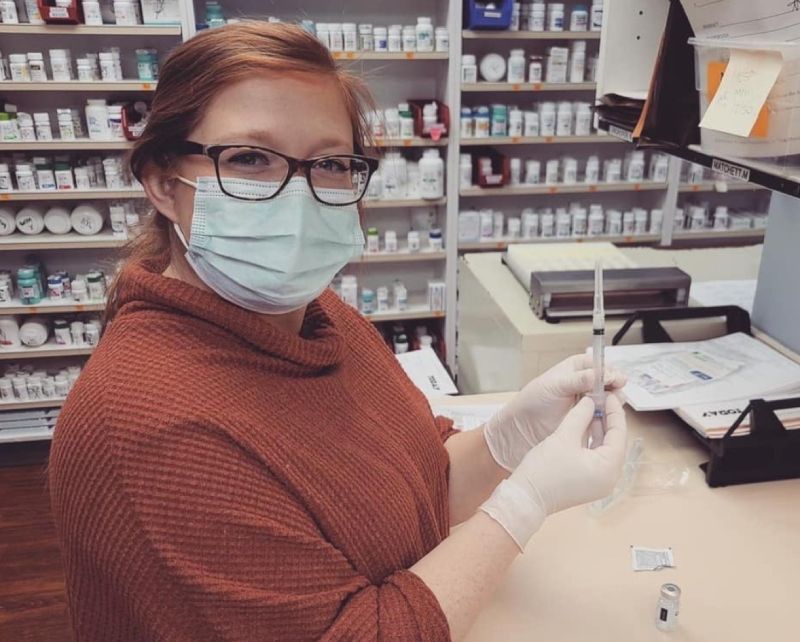When to Take the MCAT and How Long to Study Beforehand
If you are looking to attend medical school, there are several prerequisites that must be completed before applying. On that list is the Medical College Admission Test or MCAT. This standardized, multiple-choice exam covers critical problem-solving and critical thinking skills. It will also give schools an understanding of your knowledge of concepts and principles related to behavior and social science.
A common question pre-health students have is not only what’s on the MCAT but also when to take the MCAT. The answer depends on a few things, but there is a general timeline that most follow. This article will cover some basic information about taking this critical entrance exam and how long it takes to study for the MCAT.
When Do You Take the MCAT?
The answer is sometime after you take the pre-medical coursework that covers the information in the test and before you apply to medical schools. Beyond that, there is no one-size-fits-all solution.
For example, you could take the exam before getting your undergraduate degree if you get the necessary courses out of the way. However, it can take some time, most can’t take it before their junior year.
In fact, if your goal is to attend medical school immediately after graduation, you should plan on taking it sometime during that third year. That gets it out of the way before the application cycle begins around June.
Perhaps the best approach is to answer some questions so you understand when you might want to take the exam.
When Do You Plan to Go to Medical School?
Some students prefer to take some time off after graduating from college. Others want to jump right into a graduate program. So, knowing when you plan to attend medical school will allow you to build your timeline.
Generally speaking, you will most likely take the exam the same year you start applying for medical school. If you plan to enter right away, then your junior year of college makes sense. If you are taking a year off, you might take it in your senior year instead.
Do You Expect to Take the Test More Than Once?
Considering multiple MCAT attempts? It’s a strategic move many future medical professionals contemplate. If there’s even a hint of retaking the test, it’s prudent to plan ahead. Even if you achieve a passing score on your first attempt, a subsequent try might elevate that score further.
Many aspiring medical students opt for an early MCAT attempt, perhaps during their sophomore year. This proactive approach provides a valuable orientation to the test, positioning them for an improved score in subsequent attempts. However, it’s crucial to remember that medical schools will have visibility into all your attempts, so ensure each one counts.
Organize your timeline: take the test, assess your scores, and then decide on a retake. This foresight prevents potential delays, ensuring you’re on track for timely medical school applications.
Are you asking, “When is the Latest I can Take the MCAT?”
For a seamless application process, it’s recommended to finalize your MCAT examination between January and April of your application year. Delaying beyond this timeframe might necessitate postponing your application.
How Well Prepared Do You Feel for the Exam?
Your confidence level in the MCAT content can influence your study duration. While foundational knowledge is often covered in introductory courses, it’s essential to allocate ample time for a comprehensive review, ensuring you’re well-prepared.
What Other Prerequisites Do You Need to Apply?
While the MCAT is a pivotal component, it’s one of several prerequisites for medical school admission. It’s crucial not to overlook other requirements, such as accruing clinical hours.
These hours not only bolster your application but also refine your practical skills, aligning with the MCAT’s emphasis on applying theoretical knowledge to real-world patient care scenarios.
You can get hands-on practice and clinical hours in the medical field by completing one of the Advanced eClinical Training (ACT) online medical certifications. That will give you the credentials necessary to work in a hospital or healthcare setting at an affordable price.
How Long Does It Take to Study for the MCAT?
Once you get past the obvious question, “When Should I take the MCAT?” you can focus on how to study for the MCAT and how long it takes to study for it.
When calculating how long to study for MCAT, first, break your the time down into two or three parts:
- Diagnostic Assessment: Embark with a practice test to gauge your current proficiency. This serves as your foundational benchmark.
- Dedicated Study Period: This is the crux of your preparation.
- Concluding Evaluation: A final practice test to measure your progress.
When taking that first test, set it up in the same atmosphere as the actual exam. For example, you might take it in the library so you can plan ways to prevent distractions.
Take the whole test at once, allowing for breaks between sections. There should be no food or drink when taking the test. This will give you some idea of how long to study for the MCAT.
A good action plan is to study at least 10 to 15 hours a week, covering all the topics. Go through the ones you are most proficient at first. This is a review of the material. Spend additional time on the weak areas.
Some things to keep in mind while studying:
- Remember, this is not a test about speed. Take your time and focus on accuracy.
- Make that first baseline test untimed and go slow. Once you are more confident, you can start timed tests, but speed is not your main concern. Allow yourself the full time to take even the practice tests.
- Going through the practice tests slower will also help you build stamina. This is a long exam, and you’ll take it with limited breaks. Mimic that behavior.
- Practice is more critical than content review. Don’t spend months just reviewing the content without taking practice tests.
- The MCAT scores your ability to apply what you know to different situations. No amount of book study will prepare you for that. Learn the science but see beyond it. Practice tests more than just your knowledge. It tests your critical thinking and reasoning skills, as well.
- Create a reasonable study schedule and stick to it. Make time for things like socialization and exercise. Otherwise, the stress will lead to burnout.
- Plan to do lots of practice exams. They are a tool you can use for self-evaluation. Don’t just take the same test over and over. Get as many varieties of full practice exams as possible.
Charting Your Path to Med School with ACT’s Trusted Mentorship
Embarking on a medical journey, especially navigating the MCAT and med school admissions, can be overwhelming. That’s where the right guidance and resources come into play. If you’re grappling with questions about MCAT preparation or the med school admission process, ACT’s Pre-Medical Mentorship Program is here for you. Think of it as your personal guide to success but without the hefty price tag of a typical medical school admissions consultant. With the right tools and guidance, you can confidently secure a spot in the medical school of your choice.
Ready to take the next step in your medical journey? Whether you’re eyeing our online medical certification or Pre-Medical Mentorship program, ACT has got you covered. Enroll today so you can dive into your studies immediately. If you have any questions, don’t hesitate to reach out. We’re here to help!


